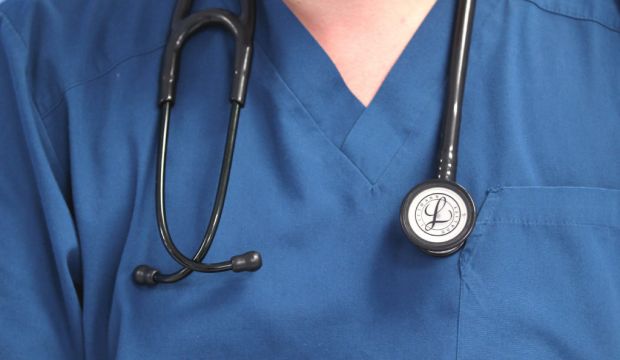Almost three-quarters of family doctors would not refer children and teenagers with severe obesity for weight-loss surgery, according to a survey of Irish GPs.
However, the study by surgeons at St Vincent’s University Hospital in Dublin found paediatricians were far more likely to consider such patients for what is known as bariatric surgery.
It showed that only 25 per cent of consultant paediatricians would not refer an adolescent for bariatric surgery such as a gastric by-pass.
However, medical professionals showed strong support for family psychological assessment but reported a lack of community support services to manage obesity.
While bariatric surgery is recommended under the HSE’s National Model of Care for Obesity in Ireland, it is currently unavailable to children and teenagers with severe obesity.
The authors of the report said its findings suggested that concerns regarding different obesity treatments for adolescents held by medical professionals should be addressed through education and engagement.
The study, which is published in the Irish Journal of Medical Science, noted that the obesity rate in Ireland is ranked as the 10th highest in Europe.
The rate is estimated to be nine per cent among children aged six to nine in the Republic and 13 per cent among 20-year-olds.
While severely overweight teenagers in Ireland can be referred to a multidisciplinary service operated by Children’s Health Ireland, it said it was likely that only up to 15 per cent of participants would see a clinically significant benefit from weight loss.
Almost half of all respondents felt that 18 years old was the minimum age above which bariatric surgery should be offered with no difference observed in when it should be considered between girls and boys.
The survey also found that 45 per cent of GPs felt the minimum body mass index (BMI) at which bariatric surgery should be considered for adolescents regardless of obesity complications is 40.
People are considered overweight if they have a BMI– a measure of a person’s body fat which is based on their weight relative to their height – of 25 or more.
A person’s BMI is calculated by their weight in kilograms being divided by the square of their height in metres.
Individuals with a BMI of 30 or higher are considered obese,
Just over a third of paediatricians felt the appropriate minimum BMI for bariatric surgery on teenagers should be 35, but an equal proportion felt 40 would be appropriate.
A narrow majority of respondents felt that patients should attend an obesity service for at least 12 months before consideration for surgery.
However, there was broad agreement on the importance of psychological assessment and support for overweight children and teenagers.
The survey highlighted how many doctors felt that such patients should have both individual and family counselling before considering surgery.
When asked about further supports, they suggested a dietician for the whole family but noted the current lack of such services.
Medical professionals were divided on whether an adolescent with a BMI of 35 or over who was regularly missing school was an indication for surgery.
A narrow majority of both GPs and paediatricians would not recommend giving medication to children and teenagers for weight problems.
However, 45 per cent of GPs said liraglutide and semaglutide should be made available for the management of obesity, although the figure was less among paediatricians.
The study said the reluctance of GPs to consider bariatric surgery for obese adolescents suggested there might be a lack of understanding of obesity as a chronic and progressive disease and the mechanisms by which surgery and medical therapies work to treat the disease.
“The opinions in this survey are more conservative than those previously published in other countries and this may reflect social and cultural differences,” it observed.
The authors said firm conclusions could not be drawn from the results of the study.
However, they added: “Reluctance to refer patients may be a result of pervasive ‘move more, eat less’ advice that is given by healthcare professionals worldwide.”
The study said it was unclear what level of knowledge exists among medical practitioners about some relatively new medications to treat obesity in adolescents.
Responses to the survey included that bariatric surgery was “a relatively high-risk procedure for what is mostly a societal problem” and that we should “spend more money on prevention/education…but accept in some situations it might be needed.”







